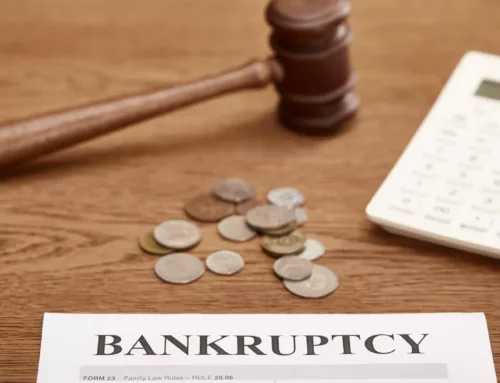Bankruptcy filings are generally regulated by federal law; however, bankruptcy laws may vary from state to state. In Michigan, there are certain guidelines that you need to follow in filing bankruptcy. A reliable Royal Oak bankruptcy attorney can help you understand the bankruptcy laws to avoid unnecessary errors and penalties in your bankruptcy filing.
This article will help you understand how bankruptcy works by answering the following questions:
- What are the Different Types of Bankruptcy?
- Will Filing Bankruptcy in Michigan Wipe Out All My Debts?
- How Do I File Bankruptcy in Michigan?
- How Do I Keep My Property When Filing for Bankruptcy?
- Where Do I File My Bankruptcy Petition?
- What is the Role of a Bankruptcy Attorney?
What are the Different Types of Bankruptcy?
Before you declare bankruptcy, you must know how to choose the most appropriate bankruptcy type that will solve your financial problems. Chapter 7 and Chapter 13 are the two common types of bankruptcy.
Chapter 7 Bankruptcy

- Take credit counseling sessions from an approved credit counseling agency within 180 days before filing.
- Pass the means test. (The average of your monthly income during the previous six months must be less than the median income for the same-sized household in your state. This test will determine if your disposable income is high enough to make partial payments to unsecured creditors. If you don’t pass the means test, you may still be able to file a Chapter 13 bankruptcy).
- You can’t have filed a Chapter 13 bankruptcy during the past six years.
- You can’t have filed a Chapter 7 bankruptcy during the past eight years. (If you tried to file a Chapter 7 or 13 bankruptcy and your case was dismissed, you have to wait at least 181 days before trying again).
Chapter 13 Bankruptcy
Chapter 13 bankruptcy, also known as the “wage earner’s bankruptcy”, allows debtors with enough income to repay all or some of their debts as an alternative to liquidation. In this chapter, you must repay your creditors some or all of what you owe using a three- to a five-year repayment plan. This will allow you to eliminate unsecured debts while catching up on missed mortgage payments. Here are some of the factors you’ll need to consider to qualify for a Chapter 13 bankruptcy:
- Debt Limits – Your secured debts and unsecured debts cannot exceed certain amounts
- Steady Income – You need to prove to the bankruptcy court that you have sufficient income to pay into a repayment plan
Will Filing Bankruptcy in Michigan Wipe Out All My Debts?
A Chapter 7 bankruptcy will generally discharge your unsecured debts, such as credit card debt, medical bills, and unsecured personal loans. The court will discharge these debts at the end of the process, generally about four to six months after you start. However, some types of unsecured debts usually aren’t discharged through a Chapter 7 bankruptcy, including child support, alimony, student loans, and some tax debts.
Furthermore, a Chapter 7 bankruptcy may discharge the debt you owe on secured loans. Secured loans are those backed by collateral, such as your home for a mortgage, or when a creditor has a lien on your property. However, even if the debt is discharged, the creditor may still have the right to foreclose on or repossess your property.
On the other hand, Chapter 13 bankruptcy can help you repay your priority debts including child support and alimony arrearages. The plan must apply your disposable income (the amount remaining after paying secured and priority debt, as well as allowed living expenses) toward unsecured debts, such as credit card balances and medical bills. This bankruptcy chapter can help you stop a mortgage foreclosure, allow you to keep property that isn’t protected by a bankruptcy exemption, and “cramdown” secured debts when the property is worth less than the amount owed.
How Do I File Bankruptcy in Michigan?
Filing bankruptcy can be financially, physically, and emotionally draining. A qualified Royal Oak bankruptcy lawyer can guide you throughout the bankruptcy process. Here are the steps in filing bankruptcy:
- Choose the best bankruptcy chapter for you
- Prepare all necessary financial documents
- Take a credit counseling course
- Fill out the official bankruptcy forms and file a complete paperwork
- Attend the 341 creditor’s meeting
- Attend the confirmation hearing and make plan payments (for Chapter 13)
- File a debtor’s education course certificate
- Receive your debt discharge
How Do I Keep My Property When Filing for Bankruptcy?
Bankruptcy doesn’t mean you’ll lose all the assets that you own. You can keep your property protected by an exemption or “exempt” property. There are state bankruptcy exemption laws that can help you save your assets. Michigan bankruptcy exemptions cover your homestead, motor vehicle, pension or retirement accounts, wages, and insurance benefits. Spouses filing together can double the exemption amount if both own the property. When a bankruptcy exemption doesn’t cover the property, you’ll either lose it in Chapter 7 or have to pay for it in the Chapter 13 repayment plan.
Where Do I File My Bankruptcy Petition?
Your bankruptcy case officially starts when you file your complete paperwork with the local bankruptcy court in Michigan and either pay the filing fee or request a fee waiver. Michigan has two bankruptcy districts—Eastern and Western. Each has multiple locations serving various geographical areas.
What is the Role of a Bankruptcy Attorney?
Filing for bankruptcy requires hard work and patience. It is a progressive process that will help you pay off your debts and achieve financial freedom, one step at a time. Debt repayment and reorganization of your finances shall be your priority. For legal assistance, do not hesitate to schedule a consultation with our experienced Royal Oak bankruptcy attorneys at Hammerschmidt Stickradt & Associates. Our lawyers will help you determine the bankruptcy chapter that you will file, keep the assets that you want, and create an affordable repayment plan to pay off all your debts. We will be with you every step of the way.



